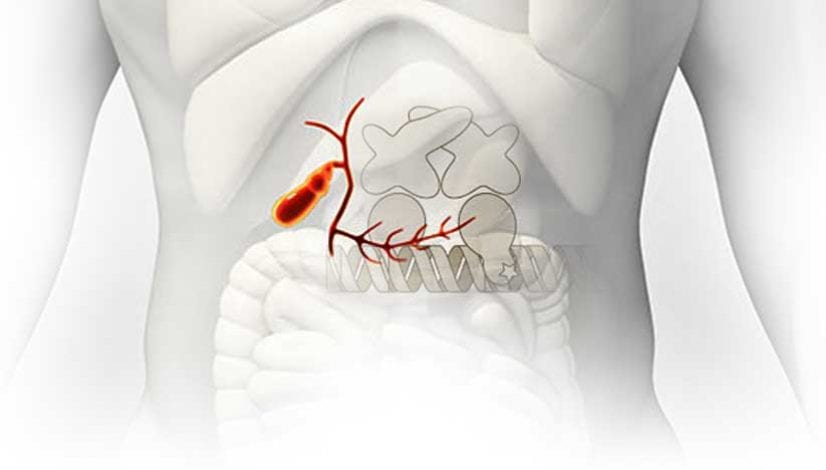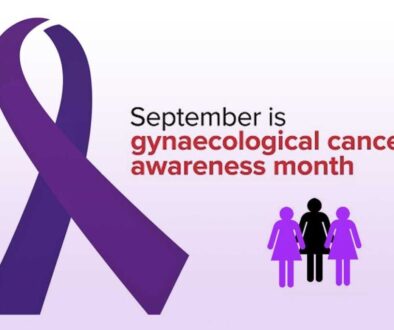Biological Pathways Involved In Cholangiocarcinoma
Cholangiocarcinoma (CCA) is an aggressive malignancy originating from the epithelium lining of the biliary tree and can be divided into two main classes in accordance with the anatomical and cellular origin: intrahepatic Cholangiocarcinoma (iCCA) and extrahepatic Cholangiocarcinoma (eCCA). It is characterized by a steady increase in incidence globally with a median survival of fewer than 24 months from the time of the diagnosis. This is mainly due to the fact, at the time of diagnosis, only about 30% of the patients can be submitted to treatments with curative intent. Nevertheless, the enormous on-going developmental effort has provided a framework for understanding the genetic basis of cancer.
Precise identification of these genetic alterations that directly drive tumorigenesis, the process by which cancers arise, progressively grow and spread can now be determined. We have tried to integrate disparate pieces of the latest available information to come up with the signaling pathways which often go haywire in hepatobiliary cancers.
Cellular Metabolism Pathway and Chromatin Remodeling Pathway
The most frequently altered genes in cholangiocarcinoma are IDH1 and IDH2. Mutations in these genes are profoundly implicated in 10-23% of iCCA. In eCCA mutated IDH1 is associated with poor prognosis. The IDH1 gene encodes for isocitrate dehydrogenase 1 and is present in cytoplasm and peroxisomes while IDH2 is localized in mitochondria. IDH converts isocitrate to α-ketoglutarate (αKG) and produces NADPH, which is necessary for many cellular processes. Altered IDH results in loss of its native enzymatic activity with a gain of a neomorphic function to produce the R-enantiomer of 2-hydroxyglutarate (R-2-HG), which is considered to be an oncometabolite. 2-HG, due to its structural similarity to α-KG, may act by antagonizing the function of α-KG-dependent enzymes such as the α-KG-dependent dioxygenases that are involved in a wide range of cellular regulations from demethylation of DNA and histone to protein hydroxylation, including the hydroxylation and degradation of HIF-1α. Xu, et al., (2011) also demonstrated 2-HG to inhibit the activity of the TET family of DNA hydroxylases, which is a tumor suppressor and critically important for demethylation of 5-methylcytosine (5mC) in DNA. Studies also considered altered epigenetic modification as a major mechanism underlying the tumorigenesis.
ARID1A gene is involved in chromatin remodeling and is reported to be altered in 14% of Gallbladder cancers. Another study reported 16% of the eCCA to have ARID1A mutations. This gene encodes a subunit of several different SWI/SNF (SWItch/Sucrose Non-Fermentable) protein complexes. These complexes regulate gene activity (expression) by a process known as chromatin remodeling, which may be altered.
Receptor Tyrosine Kinase/Growth Factor Signaling
NRAS mutation and KRAS mutation were found in 17% and 47% of resected iCCA and eCCA respectively. HER2 gene amplifications were found in 18% of eCCA. 8% to 14% of iCCA is reported to have FGFR2 fusions. FGFR mutations may be associated with a favorable prognosis. PIK3C2G gene mutations may be associated with a poor prognosis whereas, ALK gene mutations and HER2 gene amplification may be associated with a poor prognosis for iCCA and eCCA, respectively. These genes are a subset of the various cell signaling pathways, where cell membrane receptors and ion channels receive stimuli from extracellular regions that influence cell signaling. These interactions stimulate downstream signaling pathways such as Mitogen-activated protein kinase (MAPK), Phosphoinositide-3-kinase–protein kinase B (PI3K/AKT) and Janus kinase and signal transducers and activator of transcription (JAK/STAT). These interconnected signaling pathways may trigger cancer cells to proliferate and survive under a heterogeneous condition with various up-regulated and down-regulated proteins.
DNA repair pathway
24% of eCCA tumors had TP53 mutations. It is a critical gene for tumor suppression. It imparts its role by diverse cellular responses mediated through a number of collaborating pathways rather than a single transcriptional target to safeguard and retain genomic integrity against cellular stress. 14% of BAP1 mutations were found in resected iCCA. In the nucleus, BAP1 modulates the transcriptional regulation of several gene programs and promotes DNA repair by facilitating homologous recombination. In the cytoplasm, BAP1 regulates Ca2+-signaling mediated cell death. Mutations in STK11 may be associated with a poor prognosis for iCCA. STK11 encodes serine/threonine kinase 11, which is a tumor suppressor. Truncating STK11 mutations also affect TP53 activity.
Given emerging evidence regarding actionable targets for treating cholangiocarcinoma, molecular testing of unresectable and metastatic tumors should be considered. Potentially increasing the role of molecular profiling of cholangiocarcinomas will allow preventive and therapeutic anticancer measures available based upon the cancer genes identified in an individual. Identification of the oncogenes and tumor suppressor genes governing the gall bladder cancer signaling pathways is an important goal to stratify patients who might benefit from the tailored therapies.
Attempts to quantify mutation rates may vary, depending on study design and source population.
References:
- https://www.futuremedicine.com/doi/abs/10.2217/fon-2017-0451
- https://www.ncbi.nlm.nih.gov/pmc/articles/PMC3104187/
- https://www.ncbi.nlm.nih.gov/pmc/articles/PMC6562835/
- http://targetedcancercare.massgeneral.org/My-Trial-Guide/Diseases/Gall-Bladder-and-Bile-Duct-Cancers/IDH1.aspx
- https://www.ncbi.nlm.nih.gov/pubmed/21372320/
- https://www.nature.com/articles/s41419-018-1206-5
- https://www.ncbi.nlm.nih.gov/pmc/articles/PMC6085611/
- https://www.nccn.org/professionals/physician_gls/pdf/hepatobiliary.pdf
- https://www.google.com/search?q=ligand+binding+on+cell+membrance&tbm=isch&ved=2ahUKEwi0yOy29cjnAhUeKrcAHekhDWgQ2-cCegQIABAA&oq=ligand+binding+on+cell+membrance&gs_l=img.3…2630.12915..13191…0.0..2.404.5330.0j27j2j1j2……0….1..gws-wiz-img…….0j0i67.JZwGFQCGDHw&ei=2E9CXrT8JZ7U3LUP6cO0wAY&bih=737&biw=1479&client=ubuntu&hs=U57&hl=en#imgrc=StHuubep4gvwyM&imgdii=7LnTpXqdswL3gM
- Yang, Pingzhou, et al. “Somatic genetic aberrations in gallbladder cancer: comparison between Chinese and US patients.” Hepatobiliary Surgery and Nutrition 8.6 (2019): 604.
- Xu, Wei, et al. “Oncometabolite 2-hydroxyglutarate is a competitive inhibitor of α-ketoglutarate-dependent dioxygenases.” Cancercell 19.1 (2011): 17-30.
– By Fatma Islahi




